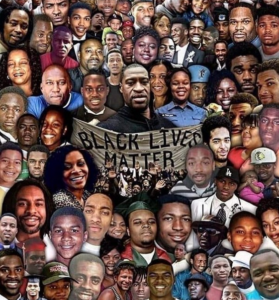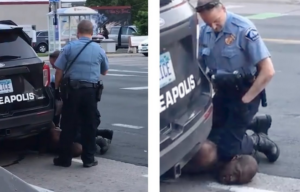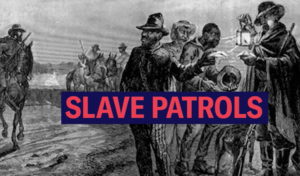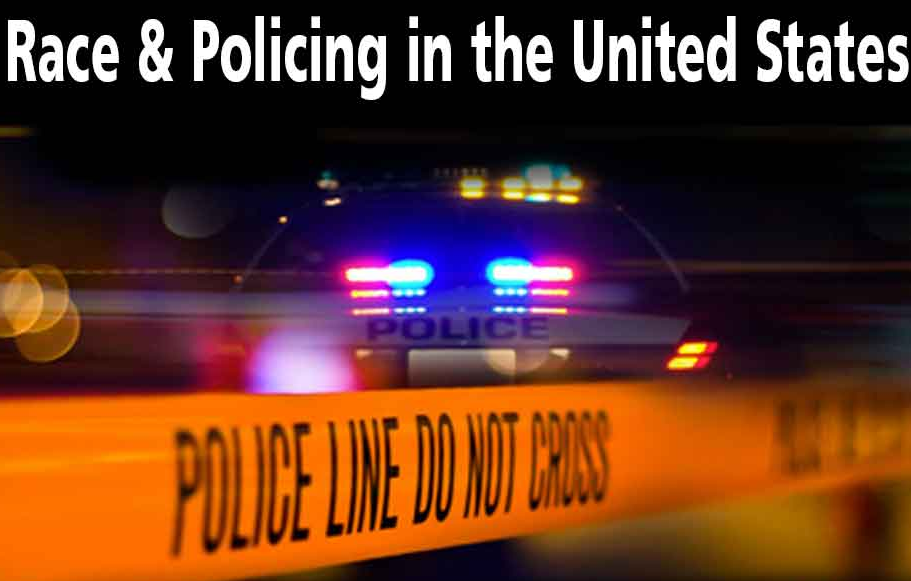Photos: Twitter\Facebook
In the United States, race and police were founded along with a capitalist economy dependent on the enslavement of workers of African descent. University Professor Ben Brucato‘s new book ‘Race and Police‘ builds a critical theory of American policing by analyzing a heterodox history of policing, drawn from the historiography of slavery and slave patrols.

Beginning by tracing the historical origins of the police mandate in British colonial America, the book shows that the peculiar institution of racialized chattel slavery originated along with a novel, binary conception of race. On one side, for the first time Europeans from various nationalities were united in a single racial category. Inclusion in this category was necessary for citizenship. On the other, Blacks were branded as slaves, cast as social enemies, and assumed to be threats to the social order.
The state determined not only that it would administer slavery, but that it would regulate slaves, authorizing the use of violence by agents of the state and white citizens to secure the social order. In doing so, slavery, citizenship, and police mutually informed one another, and together they produced racial capitalism, a working class defined and separated by the color line, and a racial social order.
Race and Police corrects the Eurocentrism in the orthodox history of American police and in predominating critical theories of police. That orthodoxy rests on an origin story that begins with Sir Robert Peel and the London Metropolitan Police Service. Predating the Met by more than a century, America’s first police, often called slave patrols, did more than maintain order—it fabricated a racial order.
Prior to their creation, all white citizens were conscripted to police all Blacks. Their participation in the coercive control of Blacks gave definition to their whiteness. Targeted as threats to the security of the economy and white society, being policed defined Blacks who, for the first time, were treated as a single racial group. The boundaries of whiteness were first established on the basis of who was required to regulate slaves, given a specific mandate to prevent Black insurrection, a mandate that remains core to the police role to this day.

Praise For Ben Brucato’s Race and Police
“Brucato’s focus on the political construction of race in and through police does more than simply correct or reorder the narratives on race and policing, but fundamentally defines them. Race and Police makes clear contributions that are long overdue in the field.”
— Mike King, author of When Riot Cops Are Not Enough: The Policing and Repression of Occupy Oakland
“Every abolitionist should read this book. Prison requires police, just as slavery required patrols. Prison seems inevitable, as did slavery. History, however, reveals no inevitable institutions, not even the Peculiar Institution. As Brucato meticulously demonstrates, the slave patrols were modern police. Why read him? Because abolition of slavery requires abolition of the police and the prison, just as much as it required abolition of the slave patrols. More importantly, the abolition of slavery is proof that policing and imprisonment aren’t inevitable.”
–Anthony Paul Farley, James Campbell Matthews Distinguished Professor of Jurisprudence at Albany Law
School
Brucato’s Race and Police, published by Rutgers University Press, will be out in September 2023.
Ben Brucato is an interdisciplinary theorist of race and police and a lecturer in the Department of Sociology at the University of Massachusetts, Amherst






